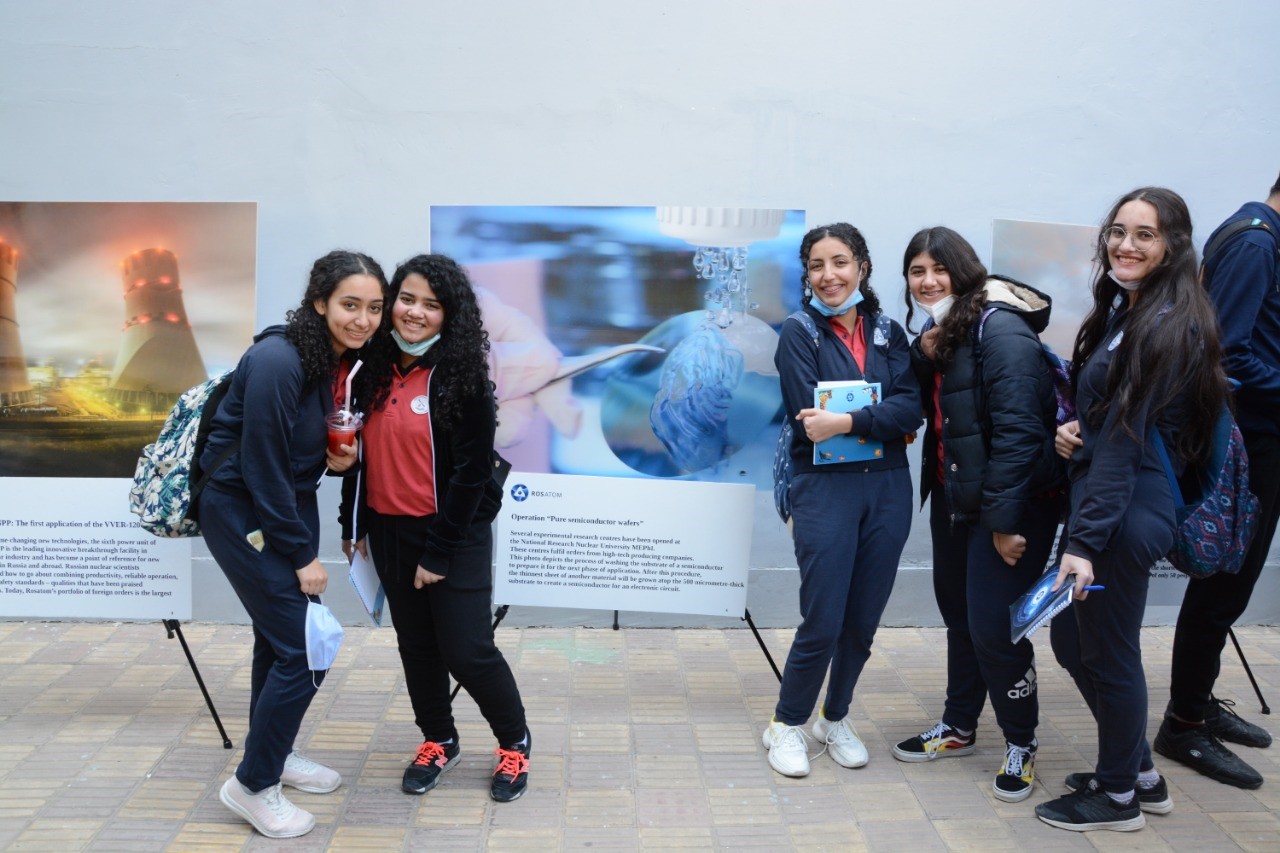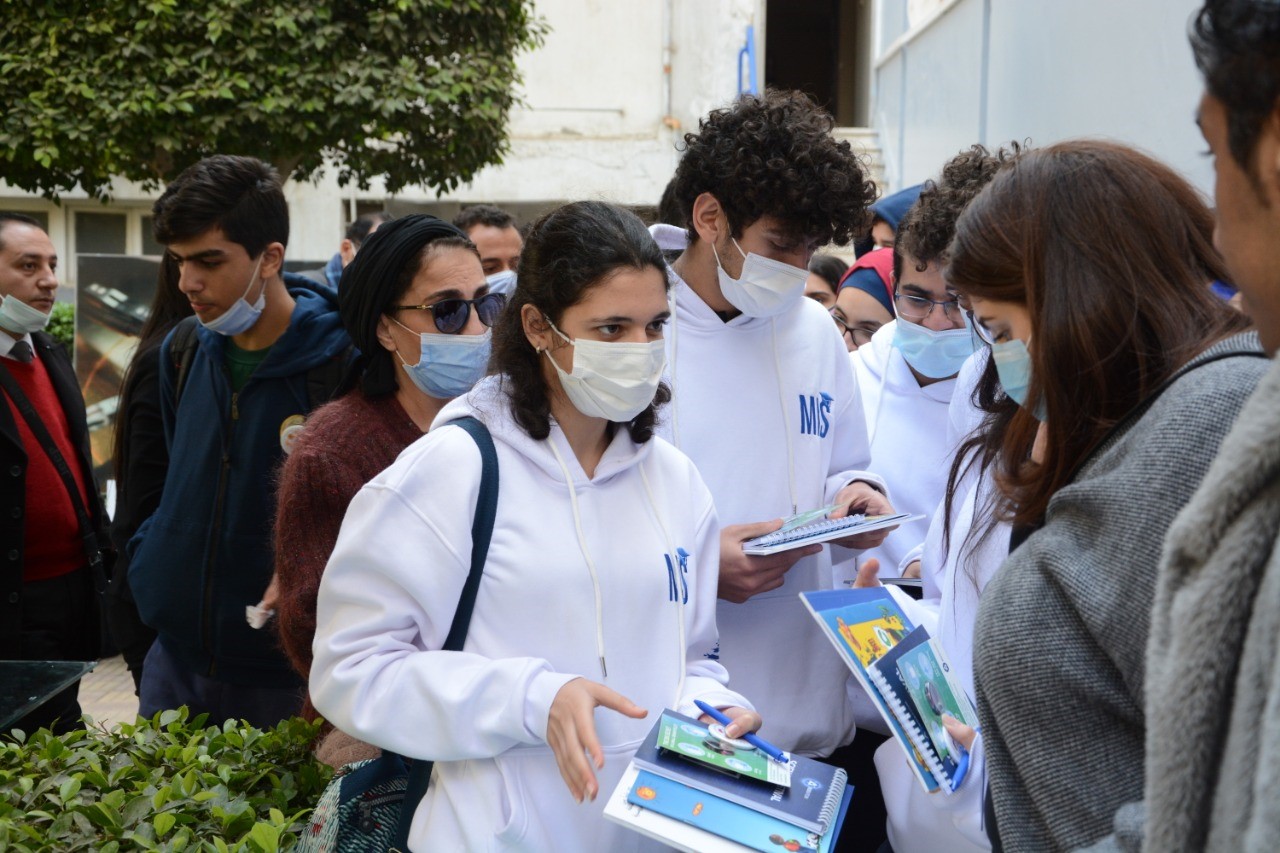Cairo, Egypt – 21 February, 2021 – The global technology leader Rosatom launched its first Science Festival Week in Egypt with opening ceremony taking place earlier today. The Science Festival, co-organised by the Russian Centre for Science and Culture, will take place in Cairo and Alexandria from 21-25 February 2021.

The opening ceremony took place on the grounds of the Russian Centre for Science and Culture in Cairo. The event was officiated by Alexander Voronkov, Rosatom regional vice-president and director of Rosatom Middle East and North Africa, and Alexey Tevanyan, Head of Rossotrudnichestvo (Russian agency responsible for administering civilian foreign aid and cultural exchange) representative office in Egypt and director of the Russian Center for Science and Culture in Cairo. Students from Cairo-based universities and schools along with their parents attended the event. It complied with social distancing recommendations and all other measures introduced by the government of Egypt to fight COVID-19.

The objective of the opening ceremony was to introduce the audience to modern nuclear technologies and engage it in several activities. An accompanying photo exhibition presented different peaceful applications of nuclear technology across the world, from clean energy generation at NPPs to nuclear medicine and nuclear-powered icebreaker navigation along the Northern Sea Route in the Arctic. During a special screening, the audience watched a documentary on the threats and challenges humanity faces worldwide and the role of science and nuclear technologies in overcoming them. Rosatom also presented another unique documentary called Atoms for Humanity, which presented simple human-interest stories on how nuclear technologies were transforming people’s lives and changing their cities and regions for the better. This particular project revealed the breadth of possibilities for the peaceful use of nuclear technologies to achieve the UN Sustainable Development Goals, including clean and affordable energy, quality education, economic growth, scientific breakthroughs, and social responsibility.
The event was followed by a roundtable discussion hosted by Dr. Egor Zadeba, an associate professor at Russia’s National Research Nuclear University MEPhI (Moscow Engineering Physics Institute), The event was followed by a roundtable discussion hosted by Dr. Egor Zadeba, an associate professor at Russia’s National Research Nuclear University MEPhI (Moscow Engineering Physics Institute), who gave a lecture on the educational process at nuclear studies faculties in Russia and ways of getting a degree in nuclear sciences there. The audience showed particular interest when talking to the first Egyptian students who have graduated from Russia’s Tomsk Polytechnic University with nuclear science-related degrees. These students shared their experience of studying in Russia, reflected on why they chose to specialise in nuclear science, and answered questions from the audience.
Alexander Voronkov said: “The goal behind organising the Science Festival Week was to introduce schoolchildren and students to the fundamentals of nuclear science, its various applications, and the role of nuclear technology in a nation’s development, as well as to inspire them to consider nuclear engineering as a future profession. It is impossible to imagine modern science without the achievements of the nuclear industry and the new technologies that it has produced. In addition to scientific research, advances in nuclear science are applied in many areas of human activity, from industry to agriculture and medicine. We are convinced that the El-Dabaa NPP project, which Rosatom is implementing in Egypt, will enable the country to step into a new stage of its technological and scientific development and use the full potential of [available] peaceful nuclear technologies for the prosperity and sustainable development of Egypt.”
Aleksey Tevanyan said: “I am sure the Science Festival will be one of the brightest events of this yearlong humanitarian cooperation between Russia and Egypt. Not only will it provide Egypt’s younger generation with a chance to familiarise themselves with Russia’s advances in science, it will also give them the chance to learn more about academic opportunities for foreign students in Russia.”
The Science Festival is a series of scientific and educational events that will take place throughout this week at various academic sites in Cairo and Alexandria. Rosatom’s Science Festival is held in many countries that are developing nuclear industries, including India, Bangladesh, Uzbekistan, and Belarus. Rosatom is currently implementing the El Dabaa NPP project, Egypt’s first NPP project, near the town of El Dabaa, in the country’s Matrouh Governorate, approximately 300 km northwest of Cairo. The plant will feature four VVER-1200 reactor-equipped power units featuring a unique combination of active and passive safety systems, making Egypt the only country in Africa to operate Generation III+ reactors. Currently, there are four such power units successfully operating within Russia: two at Novovoronezh NPP and two at Leningrad NPP. Outside of Russia, one VVER-1200 reactor-equipped unit of Belarus NPP was connected to the grid in November 2020.
